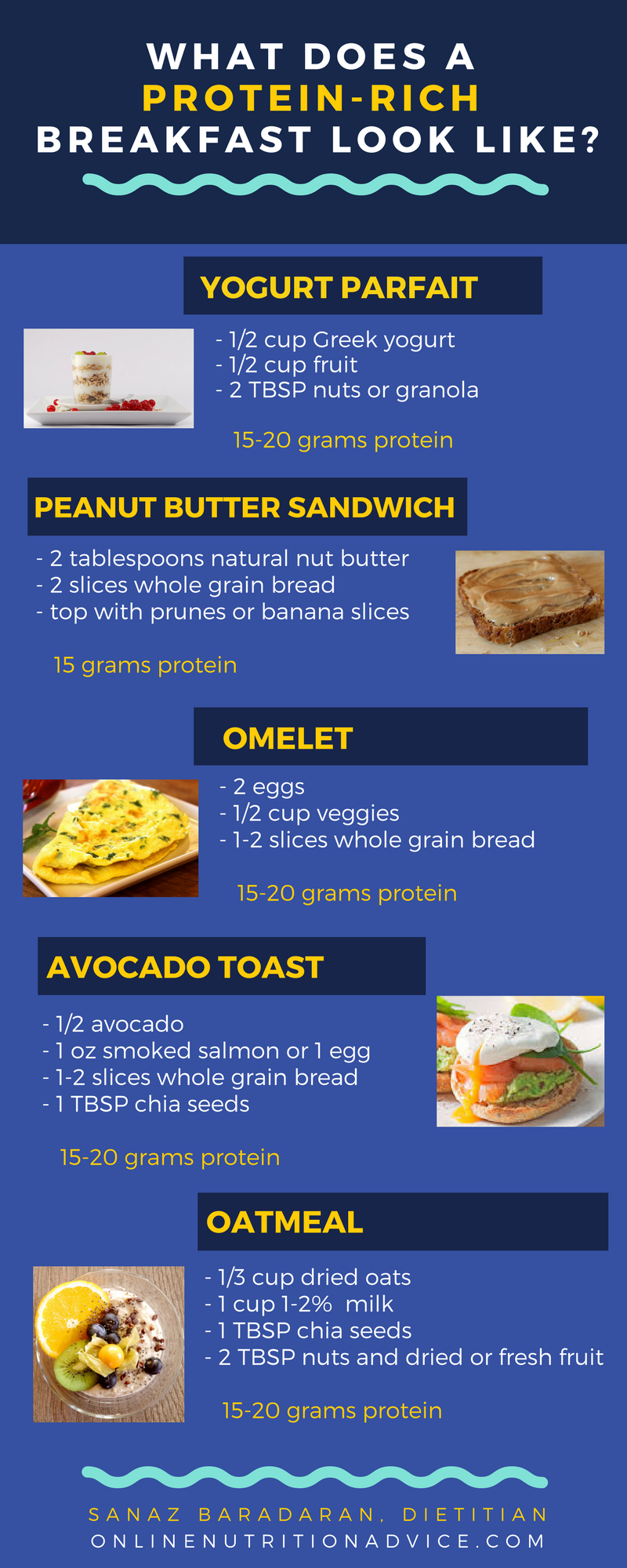Yes, you already know that breakfast is a very important meal! Studies have shown that those who are overweight or obese are more likely to skip breakfast, and those including breakfast in their diet are more likely to lose weight (1)! So even if you’re watching your calorie intake, a good breakfast is a must. To keep you full and help you manage your weight, your breakfast should be rich in protein (2).
So, what does this mean?
The guidelines suggest that you eat 0.8 to 1 gram of protein for each kilogram of your body weight. This means if you weight 60 kilograms, you would need 48 to 60 grams of protein. Of course, your individual needs may vary; for example, if you are very active and have a lean body composition, your requirements would be higher. This being said, the minimum amount of protein in each meal would be at least 15 grams for most of us. Some dietitians suggest that you aim for as much as 20 to 30 grams of protein at every meal to make sure you meet your needs.
It’s easy to get protein during most of your meals, specially if you eat meat and poultry. However, breakfast is often a challenge for some of us.
So what does a “protein-rich” breakfast look like?
The infographic below includes a few typical and easy to prepare breakfast ideas that would provide you with 15 to 20 grams of protein per serving. If your needs are greater, you may consider increasing the portion of the protein sources slightly.

References:
- Megson, M., Wing, R., & Leahey, T. M. (2017). Effects of breakfast eating and eating frequency on body mass index and weight loss outcomes in adults enrolled in an obesity treatment program. Journal of behavioral medicine, 1-7.
- Adamski, K., Darlington, G., Duncan, A., Haines, J., Ma, D., & Buchholz, A. (2017). Breakfast Protein: Why Does It Matter?.
